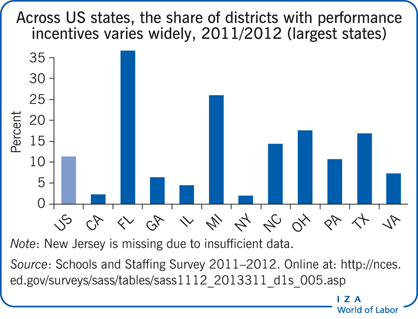Elevator pitch
Concerns about poor student performance have led schools to diverge from traditional teacher compensation and base a portion of pay on student outcomes. In the US, the number of school districts adopting such performance-based financial incentives has increased by more than 40% since 2004. Evidence on individual incentives in developed countries is mixed, with some positive and some negligible impacts. There is less evidence for developing countries, but several studies indicate that incentives can be highly effective and far cheaper to implement. Innovative incentive mechanisms such as incentives based on relative student performance show promise.

Key findings
Pros
Incentives can effectively improve student performance if they are designed well.
In developing countries, paying teachers for student performance has been shown to be highly effective at low cost.
Incentives based on the collective performance of small groups of teachers strike a balance between loss of effectiveness from free-riding teachers and gains in effectiveness from teachers cooperating with each other.
Innovative incentive mechanisms based on loss rather than gain or on relative student performance show promise for high effectiveness but are yet to be rigorously evaluated.
Cons
Overall, evidence on individual incentives in developed countries is mixed, with some positive and some negative impacts.
In countries with high teacher salaries, incentives need to be large to elicit a response, which could make them too expensive for general use.
Incentives based on the collective performance of large groups of teachers have been shown to have little impact on achievement and in some cases even generate negative impacts.
There is no evidence that incentives tied to specific exams result in improvements in other measures of academic performance, suggesting a lack of general improvements in knowledge.